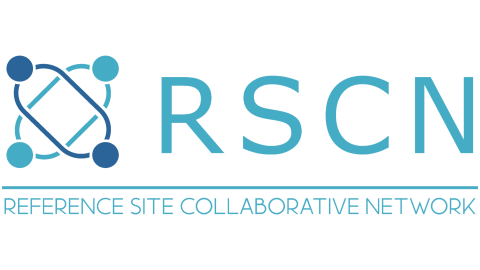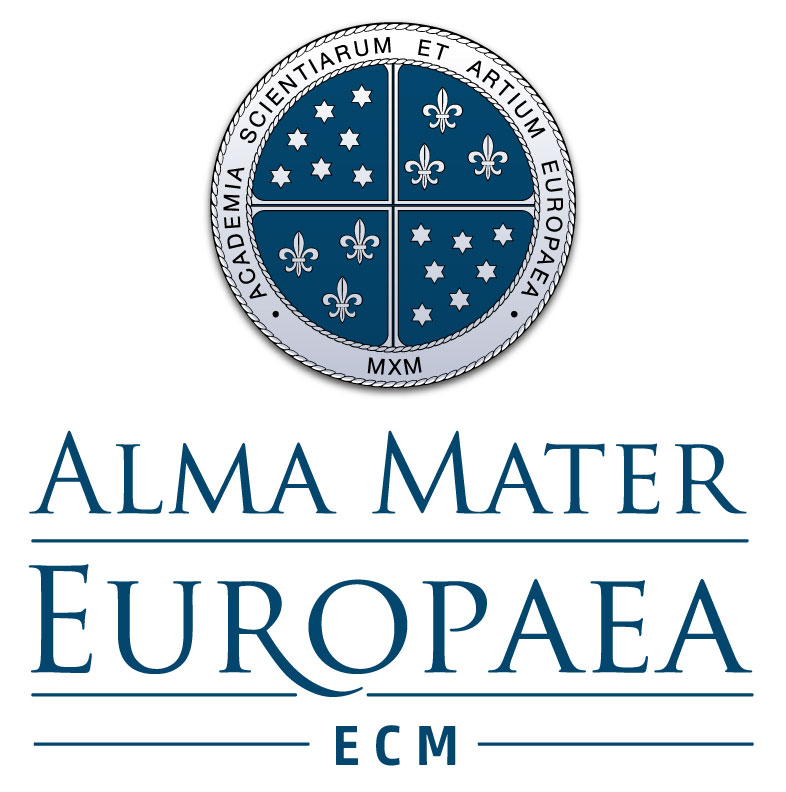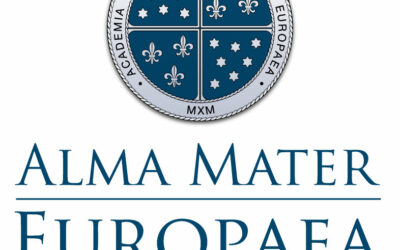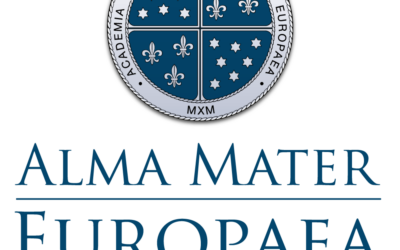Alma Mater Europaea – European Center Maribor received the title Coordinator of the “AHA Reference Site Eastern Slovenia” in October 2022. Eastern Slovenia is one of the two cohesion regions in Slovenia. It is larger compared to the Western Region, covers 61.5% of the country’s territory and approximately 52% of the population (1,084,300). At the same time, it is less economically developed and predominantly rural. The largest city in the region is Maribor, with 94,370 (2016) inhabitants. According to the latest data (SURS, 1.1.2002) in the region is 180.857 ageing people between 65-79 and 60.467 people over 80 years old.
Alma Mater Europaea is an independent higher learning institution that specialises in the provision of career-focused education in career-deficient fields of study, including physiotherapy and social gerontology study programs at all three Bologna levels and the Health Sciences program at two Bologna levels (https://en.almamater.si/en). Under the patronage of the European Academy of Science and Arts, Alma Mater Europaea strives to mold a new international leadership elite in the fields of education, culture, economy, law, health, nutrition and environment. In the school year 2022/23, 1.720 students are enrolled at Alma Mater in four study locations, in Maribor, Ljubljana, Murska Sobota and Koper.
Together with representatives of public authorities, providers of health and social care services, business, civil societ, and patient groups, at Alma Mater strive to develop partnerships and collaborations to increase the efficiency of health and care systems at the regional, national, and international levels. At the same time, we want to create economic growth through developing and adopting digital health and care technologies and innovative solutions for active and healthy aging. Consortium in the region of Eastern Slovenia, in cooperation with stakeholders from General hospitals in Novo mesto, Brežice and in Murska Sobota, University Clinical Center Maribor, several Health centers in the Eastern Slovenia, Center for social work Posavje, Educational and welfare work centers, Home for the elderly Šentjur, Home for the elderly citizens of Krško, Dom Nina Pokorn Grmovje,…, University of Maribor and University of Novo mesto, Telekom Slovenije d.d., Institute Sopotniki, ZDUS – Association of Pensioners’ Associations of Slovenia, Oreli Institute – Applied Support for Volunteering, Sožitje Krško Association, Association for the Development of Slovenian Rural Areas, and many others creates an optimal environment for developing innovations that meet citizens’ needs.
The adoption of the Long-term care Act in Slovenia at December 2021 also represents a new pillar of social security in Slovenia. It puts the individual and his right to decide on the place of ageing in the foreground and provides for the cooperation of social and health institutions of primary and secondary health care. During the transition period, several good practices of European and national projects where being implemented in Slovenia, which have gradually but systematically changed the view of established working processes in health and social care and integrated them into the social health care of people who, for various reasons, need the assistance of a third party.
The decisive factor for the development of Slovenian health and social care will be how successfully we secure new public financial resources and their transparent distribution for preventive activities, the introduction of new technologies, research and education, and development in healthcare. In this content Reference Site Eastern Slovenia aims to become a leading region in Europe for the development of smart silver villages and social farming. This ambition is supported by all stakeholders of our “Quintuple Helix”, especially the Ministry of Agriculture, Forestry and Food, Alma Mater Europaea – ECM, the INRISK Institute, Municipality of Krško, the Faculty of Civil Engineering and Geodesy of the University of Ljubljana, Centers for social work in Posavje, LAG – Posavje local action group and citizens. The idea of smart silver villages was already presented as one of the foundation letters of ideas during the presidency of the EU Commission.
Projects
Through the INTERREG ADRION Project SI4CARE, the Novo mesto Hospital, the Center for Social Work Krško, the Health Center Krško and the Social Chamber are developing a platform for mutual cooperation and exchange of experiences. https://si4care.adrioninterreg.eu/.
Project SenQuality – Preparation for later life (https://senquality.eu/) is an excellent example, as part of which Alma Mater and 6 other partners from EU are developing a tool for the well-being of people in later life in various vital areas, which will try to motivate and support them positively. It’s funded by an Erasmus+ KA Strategic Partnership.
The project Hierarchical design and financing of the social infrastructure of smart silver villages is an example of a unique synergy between Alma Mater Europaea, the INRISK Institute, the Faculty of Civil Engineering and Geodesy of the University of Ljubljana and the Ministry of Agriculture, Forestry and Food. It is financed by the Public Research Agency of the Republic of Slovenia (ARRS). They present local communities with opportunities for new jobs in rural areas within the framework of developing municipal social infrastructures and farms for long-term care
(https://en.almamater.si/hierarchical-design-and-financing-of-social-infrastructure-of-smart-silver-villages-s456).
The EU Project SAFE ZONE (@SafeZoneEU) responds to the educational challenges posed by radicalization with the objective of influencing the processes that can lead young people to approach violent extremist groups. In line with this objective, the project focuses on the educational relationship established within sports between coaches/educators and the youth who participate in sports. Project is coordinated by the Psychoanalytic Institute for Social in Research in cooperation with Alma Mater Europaea – European Center and five other European partners. www.safezoneproject.eu
Project Development of a tailormade comprehensive training concept on sarcopenia for health care workers – SARCOPENIA brings knowledge and skills among health care workers on the new but very relevant topic of sarcopenia. It’s funded by an Erasmus+ KA Strategic Partnership. It will contribute to develop new training concepts in line with the most recent standards of online learning, bring together different fields of expertise, disseminate the obtained results to a diverse group of health care workers (GPs, nurses and physiotherapists) and building a sustainable partnership all over Europe. https://www.vives.be/nl/onderzoek/agro-en-biotechnologie/e-sarc
Project Health & Academic Performance with Happy Children – HAPCH is funded by an Erasmus+ KA Strategic Partnership. The Health and Academic Performance with Happy Children (HAPHC) study aims to improve learning as well as promote health and integrate the physical activity into regular curricula through internationally and transculturally transferable PAAC materials and procedures developed in HAPHC project. This project is in accordance with the need for population-based longitudinal research on mental health, including assessment of risk factors that have the potential to be strengthened or changed to inform intervention strategies designed to promote positive development and well-being in children and integration among children. https://www.almamater.si/health-and-academic-performance-with-happy-children-hapch-s431?t=1
Renewing Ergonomic Education for Health Care Students in European HEIs – RENE is Project set to improve and unify the patient handling education in health care sector. It’s funded by an Erasmus+ KA Strategic Partnership for higher education, with the participation of 8 different organisations from 6 countries (Finland, Slovenia, Lithuania, Estonia, Portugal and Spain). https://sisu.ut.ee/rene
and https://en.almamater.si/alma-mater-europaea-hosted-final-partnership-meeting-of-rene-consortium-members-n822
A new academic path for EU Project managers: narrowing the gaps to enable better project design and management in Europe – EUPM. The project aims to achieve the following specific objectives:
• Increasing student’s job opportunities in a dynamic and attractive sector through the improvement of their skills and abilities in managing EU funded projects.
• Enriching the higher education sector with a new, common, and innovative academic path to improve its alignment to the increasing market demand of qualified EU project managers.
http://www.eupm2project.eu/
Holistic educational process and strengthening of mental health (HOLISTIC) is project funded by the ARRS. The basic purpose of the research project is to investigate the extent to which the European guidelines (to the greatest extent based on the guidelines of the UNESCO Commission) of the integrated educational process in correlation with mental health and quality/meaning of life are implemented in Slovenia. https://logopedagogika.si/
A good patient safety culture – PSC is project started 01.10.2022, faunded by ARRS. Patient safety culture is a culture of reporting errors (poor in our country), a culture of learning from errors (because there are almost »no« errors and thus nothing can be learned) and clinical risks management, a culture of flexibility, a culture of knowledge (patient safety competencies are underdeveloped) and a just culture (no one implements it). The research within the project will develop instruments in the form of questionnaires to measure patient safety culture at different health system levels and standardise them in pilot studies.
Website under construction.
New Project from 01.11.2022 Beyond sport through a »No Brain, No Gain project« – BRAIN is founded by an ERASMUS+ KA Strategic Partnership. The main objective of the Beyond sport through a ‘No Brain No Gain’ project (BRAIN) is to provide guidelines for a creation of cognitively challenging physical activities (PA), through the development and testing of an exercise program based on “enriched environments”. Cognitively challenging motor tasks trigger processes of executive functioning (EF) (e.g., working memory, inhibition, planning and monitoring), that have been recognized to be essential for literacy readiness in preschool age and later academic achievements. Website under construction.
New Project from 01.11.2022 The effects of digitization in (after) the era of COVID-19 on the quality of life and social inclusion of older adults – DIGOLD is funded by the ARRS. This research project explores answers to the key question of how broad and universal the adoption of ICT was due to the “pressure” of digitization during COVID-19. Has it led to increased levels of life quality and social inclusion in older adults, and will newly acquired ITC skills be maintained in the post-COVID-19 period as well? Hence, in the current situation, it perceive a unique opportunity to understand how major societal changes affect the lives of older adults in the context of demographic aging and long live society.
Website under construction.
Areas of Good Practice
Older adults have benefit from several projects where technologies and services are available to help them stay healthy and independent for as long as possible. Alma Mater’s cooperation in developing the comprehensive FROOMcare platform enables the medical staff to put together an individual exercise with just a few clicks and teach the patient how to exercise in the home environment according to accurate and clear instructions. A remote physiotherapy application has been piloted at the Adolf Drolc Maribor Health Centre as a very useful and well-received remote care system. (Available at https://almamater.si/upload/news/maribor24.si_145721.pdf ; Planet TV. Available at https://almamater.si/novice-in-dogodki-s49?kat=0&p=12).
For Slovenia, with the development of a new systemic development of social infrastructure, is very important the development of the Concept of the hierarchical design of smart villages.
The concept was presented in October 2021 at Rajhenburg Castle in Brestanica (Eastern Slovenia) at the International Conference “Smart Villages for a Green, Digital and Resilient Europe”, as an official high-level event within the framework of the Slovenian Presidency of the Council of the European Union. On the basis of a research project, the first “Green House” in Slovenia was built in Krško in early 2021 and a framework scheme for long-term care was prepared. In October 2020, within the framework of the Housing Program for the period 2020-2025, the Municipal Council of the Municipality of Krško also outlined Housing Communities as part of its activities for the elderly with digital support for living. (A ‘green house’ for the elderly, even those with low pensions. Available at https://cekin.si/varna-starost/pametna-srebrna-vas-jutri-starejsi-podezelje-oskrbovana-stanovanja.html).
In the Region of Eastern Slovenia, three pilot projects were implemented in the period from 01.06.2018 to 31.12.2020, co-financed by the EU from the European Social Fund and the Ministry of Health of the Republic of Slovenia. In the municipality of Krško, the Pilot project called “MOST” (“BRIDGE”). The examples of good practice from the project largely contributed to the decision of the management of the municipality of Krško to continue the services of integrated care even after the end of the project. The continuation of integrated care is now co-financed by the municipality in the amount of 50%, and the difference is contributed by the users themselves. They will keep this method of financing until the new LTC Act comes into force (January 1, 2024 or July 1, 2025). (Long-term care in the Community “MOST” in Krško continues (4.5.2021). Available at https://www.krsko.si/objava/462512).
News
Eastern Slovenia latest news
Stay informed about Alma Mater News & events : in this post you’ll find direct and diverse links to their latest news
Upcoming Events
11th Annual Conference of Europe’s Sciences and Arts Leaders and Scholars
Hybrid Conference held on 10 – 17 March 2023. It’s About People 2023 Social and Technological Development in Service of Security and Dignity.
Website, and other social media links to the AHA Reference Site
Study in the heart of Europe at Alma Mater Europaea https://en.almamater.si/en
Alma Mater Europaea Linkedin profile.
https://www.linkedin.com/school/almamatereuropaea/
Contact: projects@almamater.si



